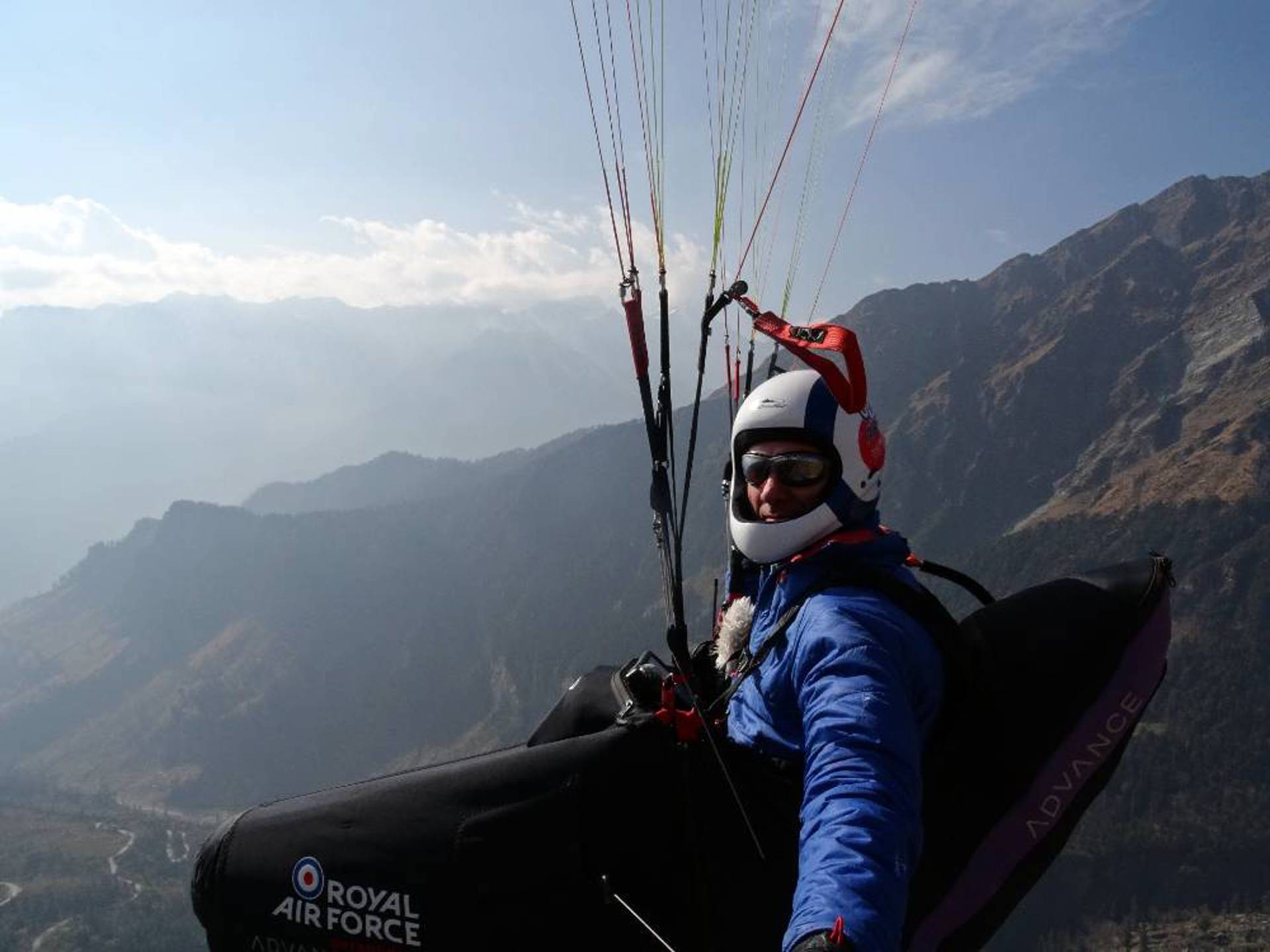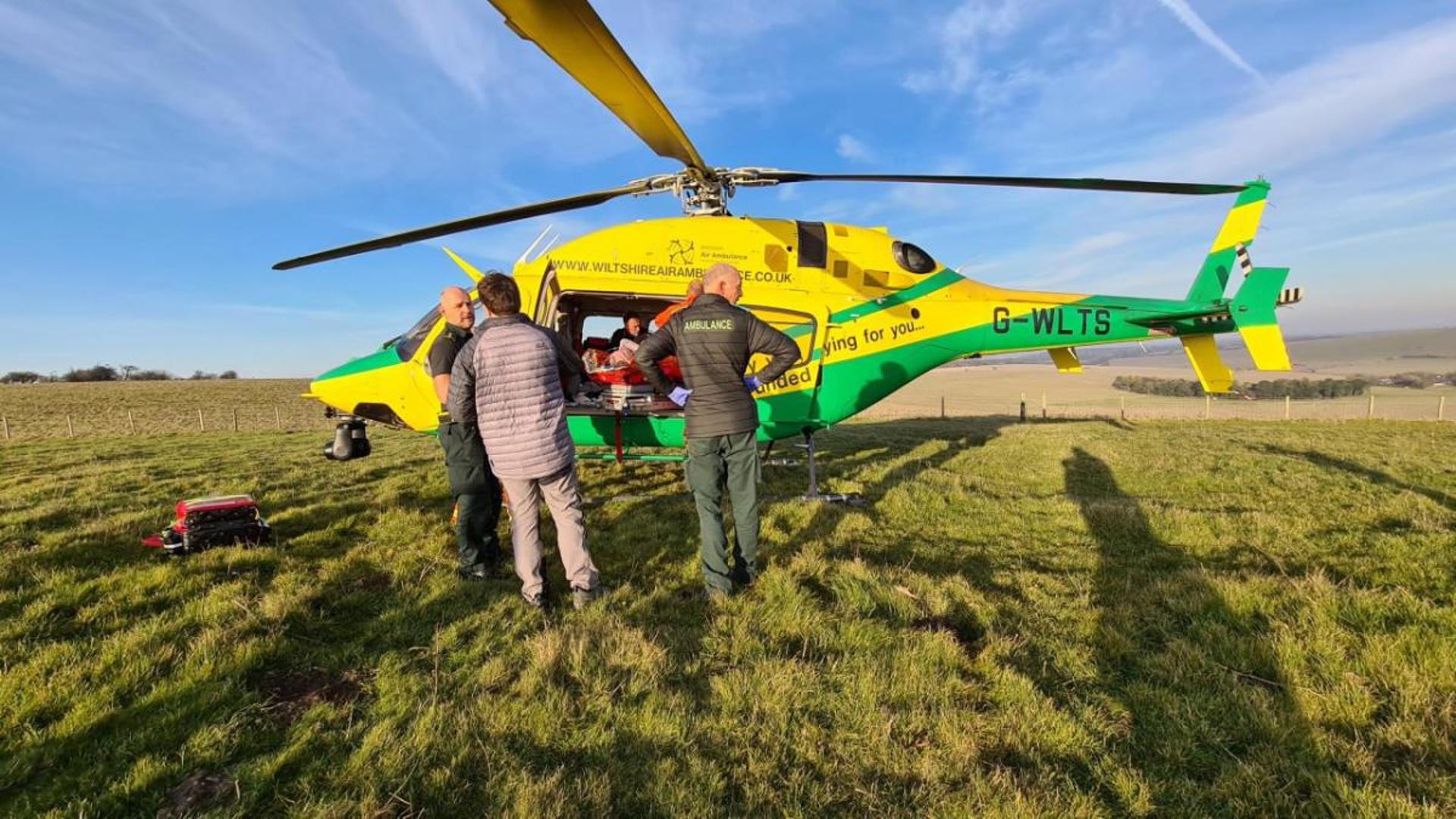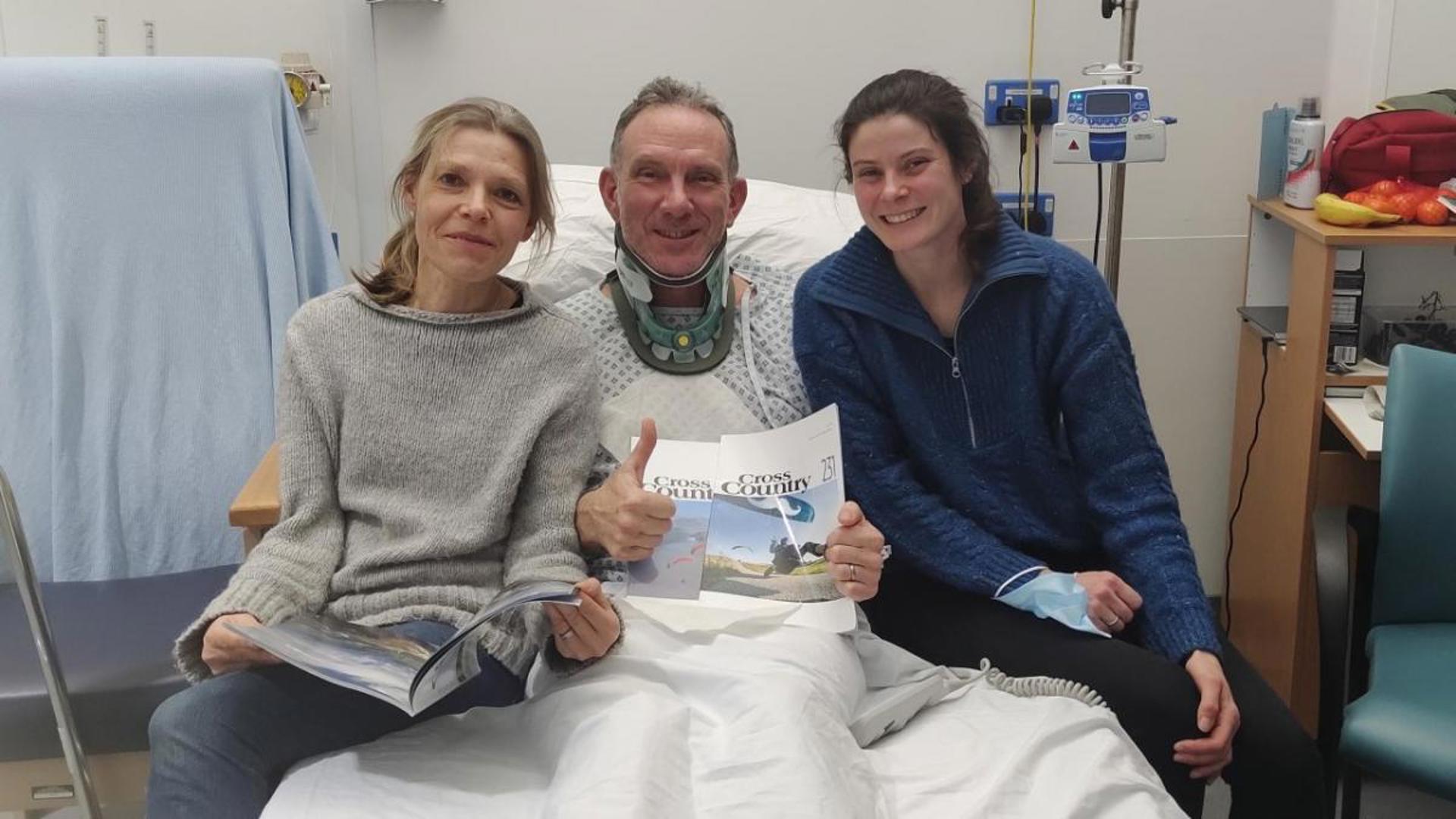Chris' story

The 58-year-old from Fairford, Gloucestershire, is a former RAF and airline pilot and had been paragliding for almost two decades. However, on a serene day over the Alton Barnes White Horse, Pewsey Downs, a sharp change of weather caused him to drop from the skies.
After suffering multiple serious trauma injuries, Chris needed to be treated and stabilised by Wiltshire and Bath Air Ambulance Charity's aircrew, who were on scene in a matter of minutes, before being flown to the major trauma centre at Southmead Hospital.
He recalls: “There was a big group of us paragliding as it was one of the first days of the new season. It was a lovely day with the first hints of spring in the air.
“There are two ways of staying flying in a paraglider; either by sitting in a wind blowing up a hill, which can become boring after a while, or the more exciting way to do it is by waiting for a bubble of warm air to release from the ground like a hot air balloon and get into that to reach up to 5,000-6,000 feet.

“The Alton Barnes White Horse at Milk Hill is well known as being a very safe hill to fly but on this day the wind was forecast to turn around, which it did as the day went on. My accident flight was actually my fourth flight of the day.
“The wind was blowing along the slope, which is generally bad news for paragliders because it does all sorts of strange stuff to the air. It gets very lumpy. I flew straight into some air that was coming down the hill and it collapsed my wing.
“I began to fall and although the wing was trying to reinflate, I was only at 70 feet. It took three seconds from the collapse before I hit the ground. There wasn’t enough time to react.

Chris landed close to the White Horse and nearby walkers rushed immediately to his aid. One rang 999 and bundled the paraglider together to stop it dragging Chris’ prone body any further along the ground, while the other was a retired dentist who also had experience of working in A&E.
Wiltshire and Bath Air Ambulance Charity’s helicopter touched down in just ten minutes, flown by pilot Simon Gough and carrying critical care doctor Rosie Furse and critical care paramedic Keith Mills.
Doctor Rosie says: “When we arrived on scene we found Chris had just regained consciousness but he remained critically unwell. He was also still wearing his harness and was precariously balanced on the side of a steep hill which made his management very tricky.
“We were able to provide him with some high strength pain relief and then use his harness to slide him into a safer position. We had to be very careful when moving him to ensure that we didn't allow his spine to move or jolt at all. Once he was more stable we were then able to secure him on a stretcher to move him to the aircraft.
“There was no way any land vehicle would have reached Chris and the South Western Ambulance Service crew that arrived had a very long walk across the hill to join us, so the benefit of having our helicopter there was clear for all to see. It made a huge difference for Chris.”
“We want to know if we call 999 that an air ambulance can be there for us, but it’s not free, it doesn’t come out of our taxes and they need our support, just like they helped me.”
Chris Williams, patient

Chris continued: “I don’t have any memory of the accident thankfully, but there is footage which I’ve seen.
“The pressure of the landing collapsed my lung, I bit through my tongue, but the worst part was the numerous fractures in my spine, most in my neck. There were two unstable fractures in my cervical vertebra #7 (C7) and thoracic vertebra #1 (T1).
“The good part was the two bones broke and moved apart, keeping away from the nerve and ensuring no damage was done to the spinal cord. Later it was discovered I had sustained breaks further down, in T4, T5, T6 and T12, but those were stable and able to recover naturally.
“I was given a choice by the neurosurgeon to be bolted back together straight away, or to wear a neck brace for three months and take the conservative approach to see if the bones would knit back together.
“In the end I had to go back in for a six-hour operation after the three months and ended up having seven vertebrae fixed together with titanium rods and screws. I’m like the bionic man now, but more importantly it has freed me of the neck brace and I can move my head again.
“I feel very lucky to have had such good care throughout.”

Chris is a volunteer Community First Responder with South Western Ambulance Service and helps deliver first aid training for nearby Great Western Air Ambulance, so was well aware of the importance of the service even before his accident.
However, he added: “As a former Emergency Care Assistant with South Central Ambulance Service, I’ve worked with air ambulances before but what I hadn’t really thought about before was the funding side of things.
“The coastguard is paid for by the Government but air ambulances are not. I was confused by that and of the 7,000-odd paragliders across the country, I wonder how many would know that air ambulances are charity funded?
“For Wiltshire and Bath Air Ambulance Charity alone it costs £4.5million a year, over £12,000 a day, to keep the helicopter flying and I feel it’s part of my role now to spread that message. I’ve since given talks about my accident and alerted people to the ‘insurance policy’ of supporting your local air ambulance.
“We want to know if we call 999 that an air ambulance can be there for us, but it’s not free, it doesn’t come out of our taxes and they need our support, just like they helped me.”
Chris has since raised over £7,000 for the charity and continues to bang the drum about the service to his fellow paragliders.
Meet the aircrew from this mission
Have you been treated by us?
If you or someone you know has been treated by our critical care team, it would be great to hear from you. We can arrange for a visit to the airbase for the chance to meet our pilots, paramedics and doctors.


